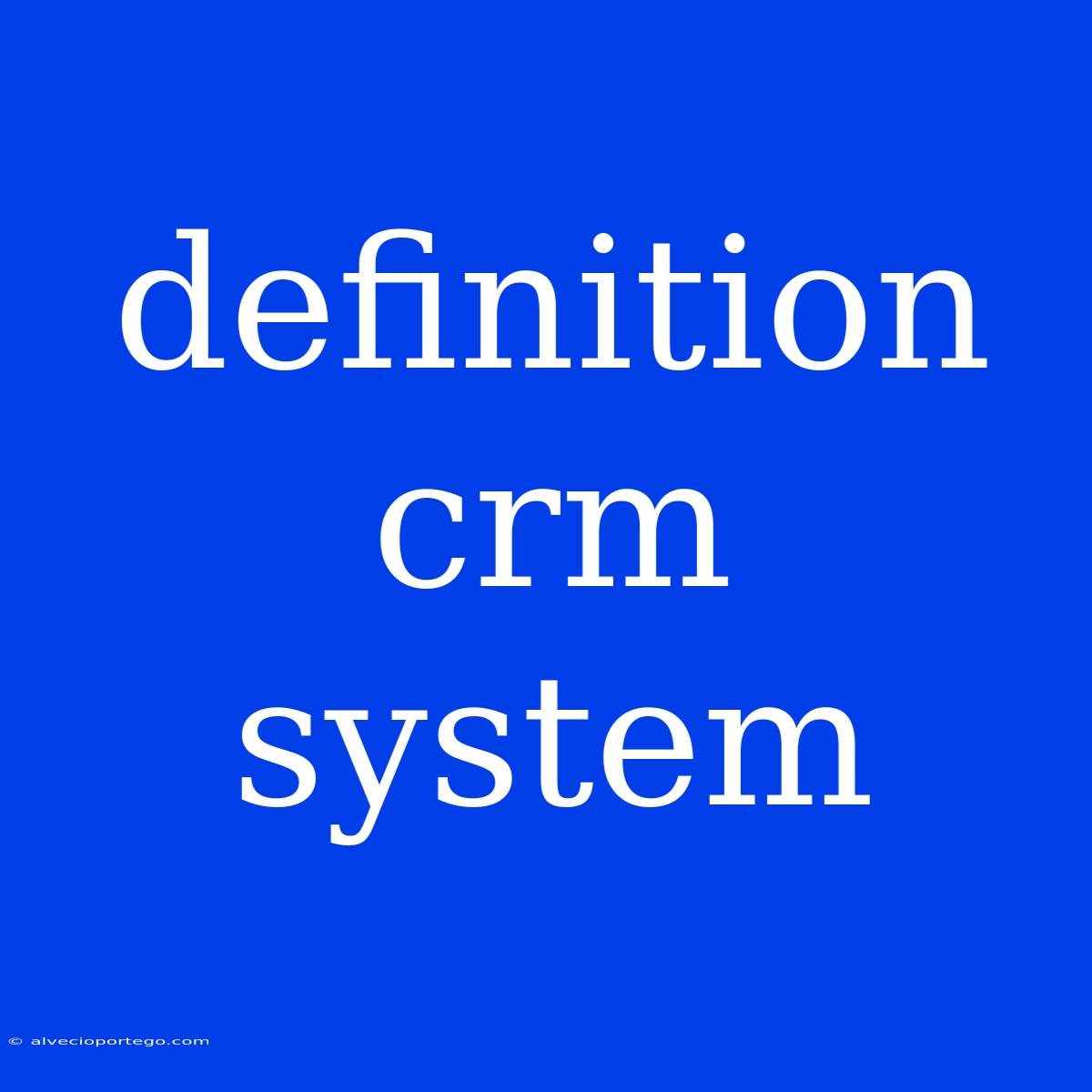What is a CRM System?
A CRM system, short for Customer Relationship Management, is a software application designed to manage and improve customer interactions and relationships. It helps businesses centralize customer data, track interactions, and automate tasks to optimize their sales, marketing, and service efforts.
Think of a CRM system as a centralized hub for all your customer information and interactions. It allows you to:
- Capture and store customer data: From basic contact information to detailed purchase history and preferences, a CRM system keeps track of everything you need to understand your customers.
- Organize and segment customers: Categorize your customers based on demographics, purchase behavior, interests, or any other relevant criteria to target your marketing and sales efforts more effectively.
- Automate tasks: Automate repetitive tasks like sending emails, scheduling appointments, or generating reports, saving you time and resources.
- Track and measure results: Gain insights into the effectiveness of your marketing campaigns, sales efforts, and customer service initiatives.
- Improve customer satisfaction: By providing a more personalized and efficient customer experience, a CRM system can help increase customer satisfaction and loyalty.
Key Benefits of a CRM System:
- Increased sales: By better understanding your customers and their needs, you can tailor your sales efforts to maximize conversions.
- Improved customer service: A CRM system can help you respond to customer inquiries faster and more efficiently, leading to increased satisfaction.
- Enhanced marketing effectiveness: Target your marketing campaigns to the right audience and measure their impact on your business.
- Improved data insights: Gain a deeper understanding of your customers and their behavior, allowing you to make more informed business decisions.
- Increased efficiency and productivity: Automate tasks and streamline workflows to free up your team for more strategic work.
Types of CRM Systems:
CRM systems come in various forms, catering to different business needs and sizes. Here are some common types:
- On-premise CRM: Software installed and maintained on your own servers, offering more control but requiring more investment in infrastructure.
- Cloud-based CRM: Software hosted and accessed via the internet, offering greater flexibility and scalability, with a subscription-based pricing model.
- Open-source CRM: Software with freely available source code, allowing for customization but requiring technical expertise to implement.
Choosing the Right CRM System:
Selecting the right CRM system for your business requires careful consideration of several factors:
- Your business size and industry: Different systems cater to businesses of different sizes and industries.
- Your budget: CRM systems range in price, so it's important to choose one that fits your budget.
- Your specific needs and goals: Identify the features and functionalities that are most important to your business.
- Ease of use and integration: Choose a system that is easy to use and integrates well with your existing systems.
By choosing the right CRM system, you can significantly enhance your customer relationships and drive business growth.

